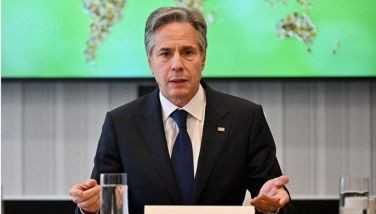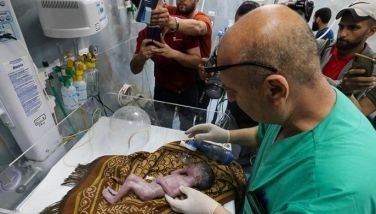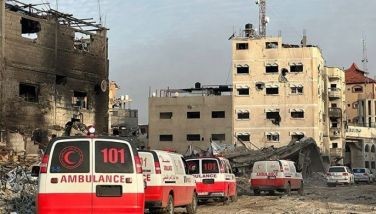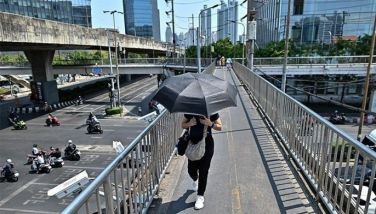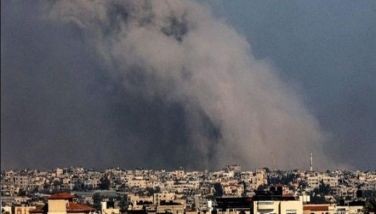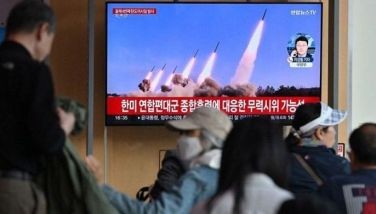Namibia to pick new president in Nov. 28 election
WINDHOEK — This year, Namibia unveiled a hilltop statue of independence leader Sam Nujoma holding aloft a copy of the African country's constitution, which was amended to let him to serve three terms as president until 2005. With the ruling party he led poised for another election win this week, analysts say a tougher test of Namibian democracy will come when an opposition party wins.
It is a model that holds true in other parts of Africa where liberation movements that fought colonialism and white minority rule morphed into dominant political parties for decades. While some brought stability and more rights, their lengthy control of state resources and patronage networks fueled increasing resentment among opposition groups.
Elections this year in Botswana, Mozambique and South Africa, where ruling parties posted comfortable wins despite robust challenges, fit the mold. In Zimbabwe, President Robert Mugabe has kept control since independence in 1980 with a series of disputed elections and crackdowns on dissent. In Lesotho, political instability and even violence has beset a rare African power-sharing experiment in the form of a coalition government. Zambia, however, has had peaceful changes of ruling parties at the polls.
"The parties themselves must realize that the fact that you brought independence doesn't mean that you own the people," said Muna Ndulo, a law professor and director of Cornell University's Institute for African Development. Some ruling parties, he said, may find it challenging to let go of power in a peaceful transfer if they lose an election.
The presidential candidate of Namibia's ruling SWAPO party in the Nov. 28 parliamentary and presidential elections is Prime Minister Hage Geingob, who campaigned for independence decades ago at the United Nations. If elected, he would succeed President Hifikepunye Pohamba, who is stepping down after serving two five-year terms.
The new statue of Nujoma, 85, stands in front of a recently inaugurated independence museum that was built with the help of designers from North Korea, triggering questions about the project cost and the relationship with the secretive Asian state.
The museum, a shiny structure perched on three giant pillars, looms over the Namibian capital, Windhoek. It is near a century-old church built by German colonizers whose slaughter of the local people shapes a traumatic narrative in this arid country of 2 million people on the Atlantic Ocean.
The German church on Fidel Castro Street contains a plaque with names of Germans who died during the colonial power's massacres of tribesmen in the early 20th century. Up the road is a new "Genocide Memorial Statue" that depicts colonial soldiers lynching victims.
South Africa occupied what is now Namibia after the defeat of German forces there in World War I and later imposed its apartheid system of racial separation. SWAPO guerrillas fought South African troops in a Cold War-era conflict that ended with UN-supervised elections in 1989. Independence was declared in 1990.
Modern Namibia enjoys political stability and benefits from major diamond and uranium reserves as well as revenue from tourists drawn to its stark landscapes, including the Namib desert. Geingob, the prime minister, acknowledged that Namibia still has high poverty and lacks adequate health facilities.
"No child should be taught under a tree," he has said, referring to the need for more school buildings.
At a recent film festival in the southern African country, three new films told stories about a rebellious girl, an unsettled protagonist who returns to her desolate hometown and the migrations of the Herero people led by Samuel Maharero, a chief who fought German colonizers.
"We're still trying to find our voice and we're trying to get a lot of things out of our system," said Tim Huebschle, a festival organizer. "Give it a couple of years and I think the themes of this country will become clearer in terms of storytelling."
- Latest
- Trending













